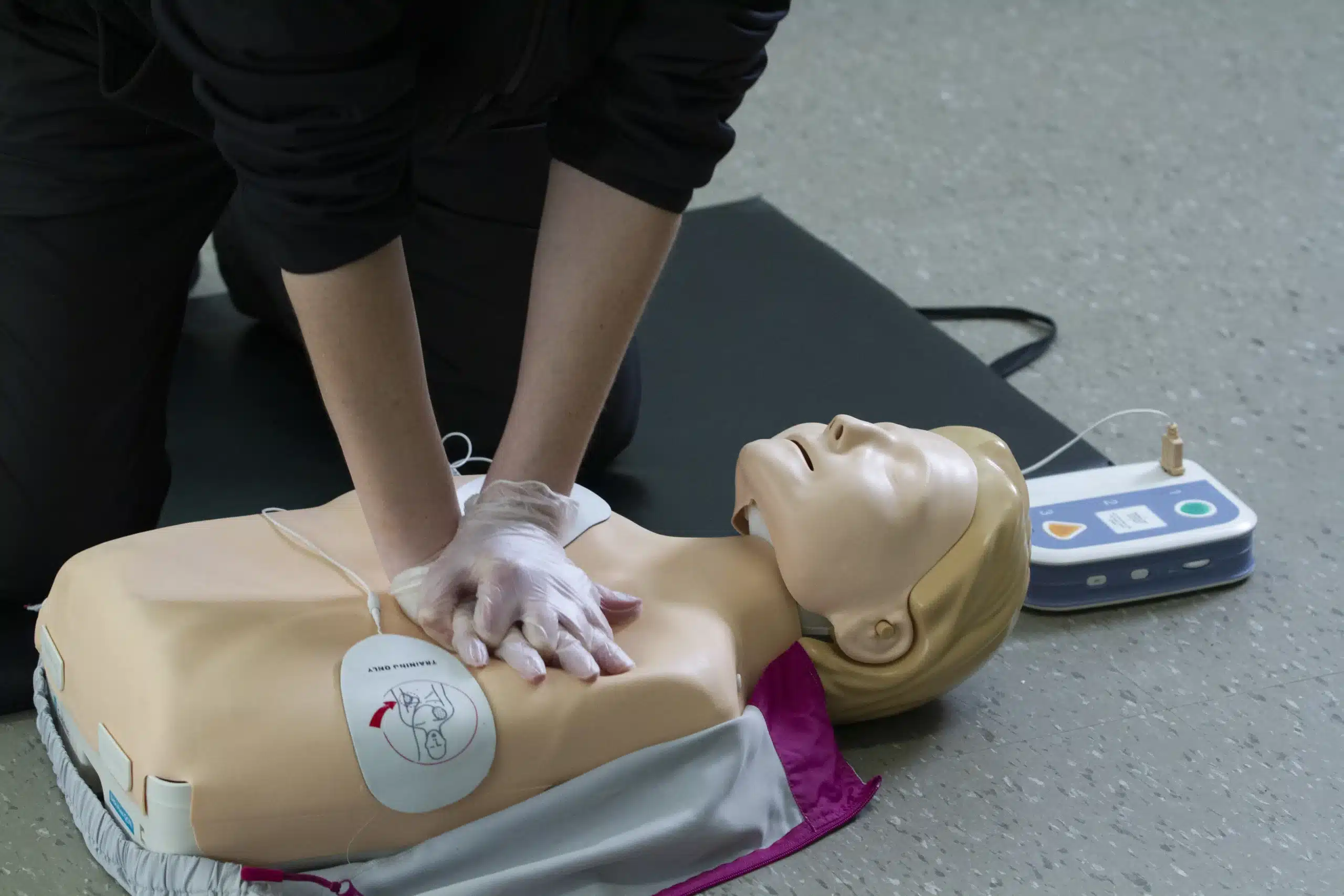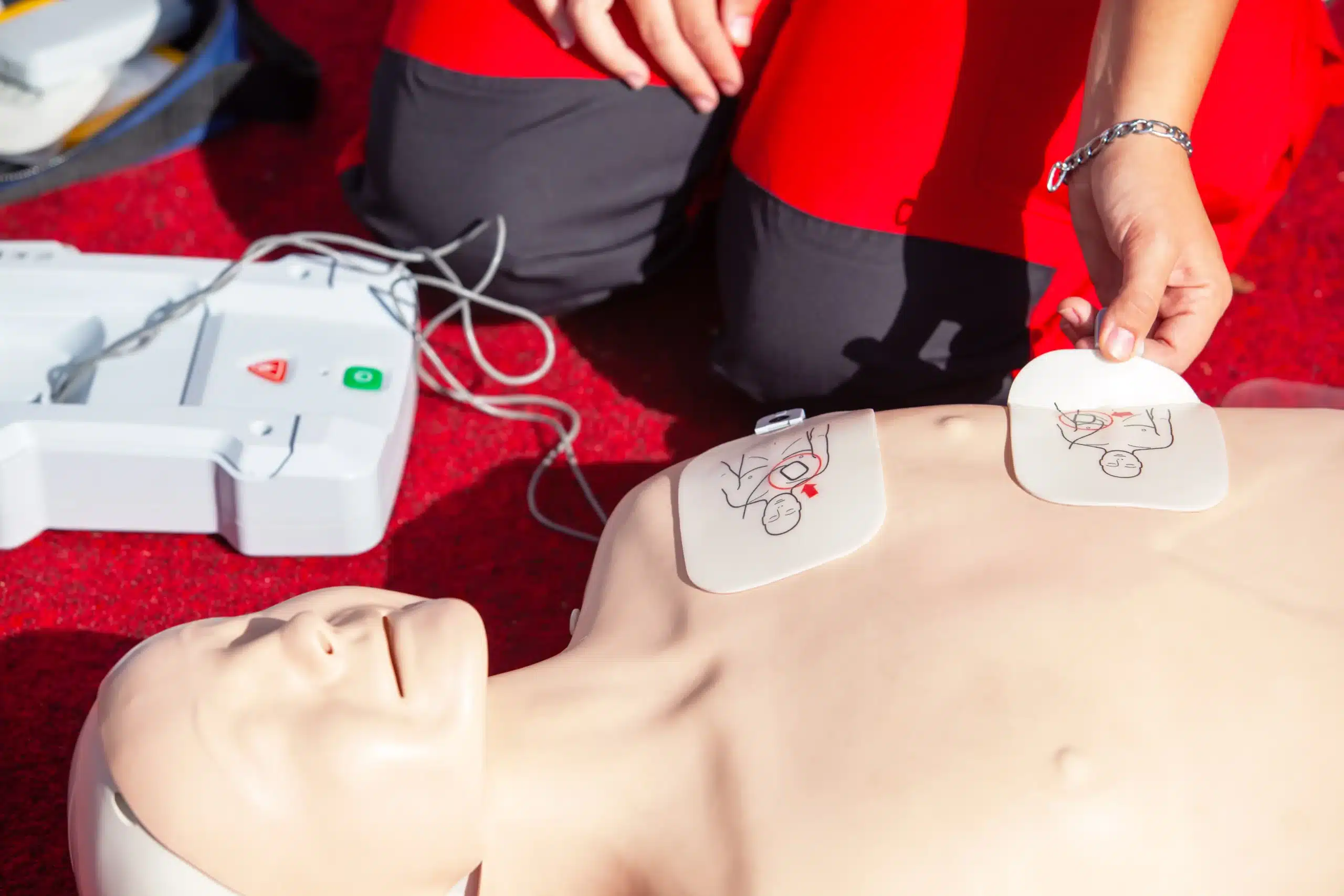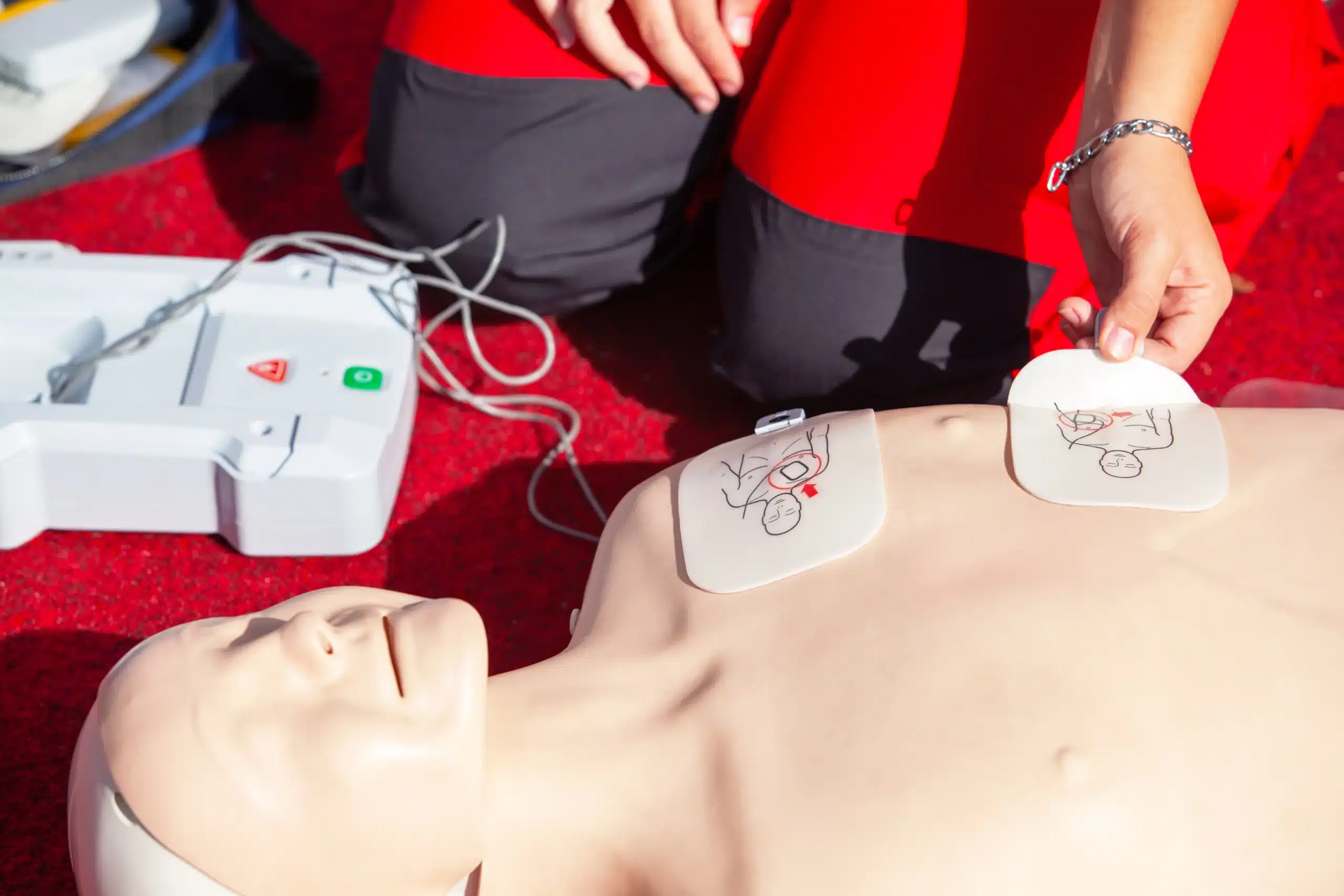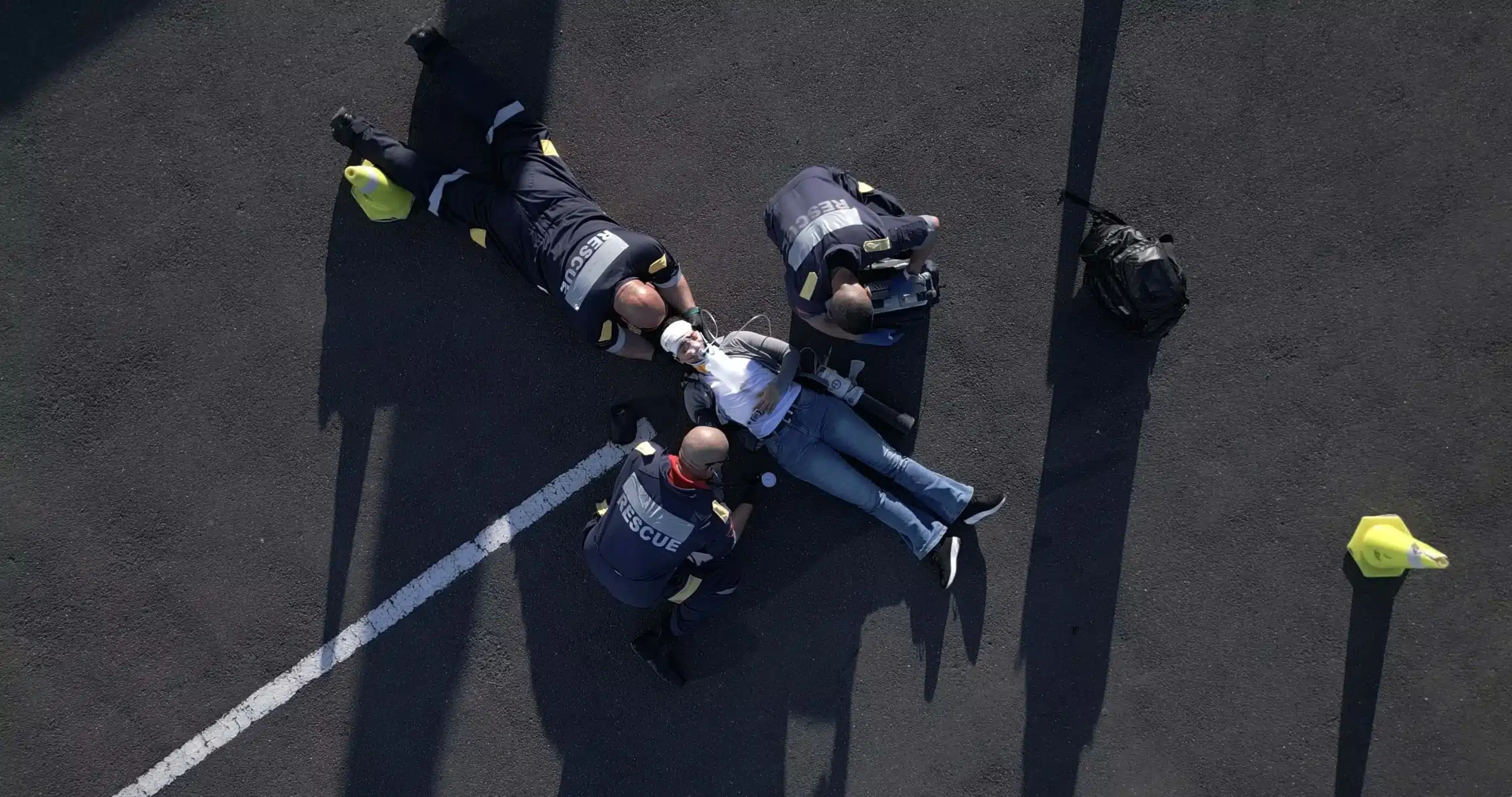Working with infants and children in a healthcare setting requires specialized training to handle emergencies effectively. Pediatric Advanced Life Support (PALS) certification equips you with the skills to respond confidently to critical situations. This article explores the HeartCode PALS blended learning course offered in Hayward, combining online convenience with hands-on practice. We’ll break down how the course works, the costs involved, the time commitment, and the essential skills you’ll gain. If you’re a healthcare provider in Hayward looking to enhance your pediatric emergency care skills, understanding the PALS Heartcode in Hayward program is a great place to start. We’ll also cover how to prepare for the course, maintain your certification, and why choosing the right training center matters.
Key Takeaways
- HeartCode PALS blends online learning with hands-on practice: This flexible approach lets you learn the core concepts at your own speed before demonstrating your skills in person.
- Gain essential skills for pediatric emergencies: You’ll learn to assess, resuscitate, and communicate effectively during pediatric emergencies, building confidence and competence.
- Accessible training with San Leandro CPR Classes: Conveniently located and affordably priced, their courses offer high-quality instruction and flexible scheduling options.
What is HeartCode PALS?
HeartCode PALS is the American Heart Association’s (AHA) blended learning course for Pediatric Advanced Life Support. This approach combines online learning with in-person skills practice. The online portion uses videos and simulated pediatric emergencies to teach a systematic approach to pediatric assessment, basic life support, PALS treatment algorithms, effective resuscitation, and team dynamics. It’s an interactive way to learn the core concepts of PALS before practicing your skills.
Who Should Take This Course?
The HeartCode PALS course is designed for healthcare providers who need to know how to identify and treat cardiopulmonary arrest and other conditions that can lead to it in infants and children. This includes professionals like doctors, nurses, paramedics, respiratory therapists, and other healthcare professionals who regularly work with pediatric patients. If you respond to pediatric emergencies, this course will give you the knowledge and skills to provide effective care. The AHA provides more information on who can benefit from PALS certification.
Course Goals
The goal of the PALS course is to improve the quality of care for seriously ill or injured children, resulting in better outcomes. The course covers essential skills like child and infant basic life support (BLS) and offers optional testing for various case scenarios. During the hands-on portion, you’ll participate in learning stations focused on key areas like respiratory emergencies, rhythm disturbances, and vascular access. You’ll gain practical experience and build confidence in managing these critical situations.
How HeartCode PALS Works in Hayward
HeartCode PALS blends online learning with in-person skills practice. This flexible approach creates a personalized learning experience. Here’s how it works:
Online Learning
You’ll begin with the self-paced HeartCode PALS online portion, allowing you to work through the curriculum whenever it’s convenient. The American Heart Association uses this blended learning method to combine online modules with hands-on training. This allows you to learn key concepts and procedures at your own speed before practicing your skills in person.
Hands-On Skills Practice
After completing the online modules, you’ll attend an in-person skills session at our San Leandro location, easily accessible from Hayward, Union City, and San Leandro. This session emphasizes practicing essential skills, including child and infant BLS. The in-person training lasts approximately five hours, including breaks. You’ll practice case scenarios at various learning stations (this practice is required, but testing on the scenarios is optional) and demonstrate competency in key areas to prepare you for real-world pediatric emergencies.
Why Blended Learning?
This blended learning format offers distinct advantages. The HeartCode PALS system adapts to your individual learning style, creating a personalized path to mastery. By using your responses and confidence levels to adjust the content, the program focuses your learning experience on areas needing more practice. The PALS Provider Course equips healthcare providers with the skills to confidently manage pediatric emergencies, ranging from respiratory distress to cardiac arrest.
HeartCode PALS Costs
Understanding the cost of PALS certification is important as you plan your training. We’ve broken down the expenses involved in the HeartCode PALS blended learning course to help you prepare:
Online Course Price
The online portion of the HeartCode PALS course costs $168 and is purchased directly through the American Heart Association (AHA). This part of the course allows you to learn at your own pace from anywhere with an internet connection. It typically takes between four and six hours to complete. Check out our page on AHA courses for more information.
Skills Session Price
After completing the online training, you’ll participate in a hands-on skills session with a certified instructor. This in-person session costs $150 and gives you a chance to practice essential skills and receive personalized feedback. The skills session typically lasts about two hours.
Total Certification Cost
The total cost for your PALS certification, including both the online course and the skills session, is $318. The online portion is a separate purchase through the AHA. The $150 skills session fee covers the training, instruction, and your PALS certification card.
Group Discounts
We offer discounts for groups of two to five people enrolling in PALS certification together. Learn more about our group discount options and save on training costs. Our low price guarantee ensures you’re getting the best possible value.
Time Commitment
Understanding the time commitment for PALS HeartCode certification is important for planning your training. This blended learning course combines online coursework with a hands-on skills session, offering flexibility while ensuring you gain the necessary expertise.
Online Learning (6-9 hours)
The online portion of the HeartCode PALS course typically takes about 6–9 hours to complete. This self-paced learning allows you to work through the material when it’s convenient for you. The actual time will vary depending on your prior knowledge and experience with pediatric advanced life support. This part of the course covers essential PALS concepts and prepares you for the hands-on skills session. You can find more information about the PALS course structure from the American Heart Association.
Hands-On Training (5 hours)
After completing the online portion, you’ll participate in a 5-hour hands-on skills session. This in-person training with a certified instructor at our San Leandro location focuses on practical application and skill development. You’ll practice essential techniques and work through realistic scenarios to build confidence in your ability to respond to pediatric emergencies. Check out the American Heart Association’s PALS course options for more details.
Course Resources
The HeartCode PALS online portion uses adaptive learning technology to personalize your experience. The program adjusts to your learning pace and style, ensuring you focus on the areas where you need the most practice. This includes interactive modules, assessments, and personalized feedback to help you master the material. The American Heart Association offers details on the PALS course resources available.
Skills You’ll Gain
The PALS HeartCode blended learning course equips you with essential skills to confidently manage pediatric emergencies. From assessment to teamwork, you’ll develop a comprehensive skill set applicable to real-world scenarios.
Pediatric Assessment
This course emphasizes rapid and systematic pediatric assessment skills. You’ll learn to quickly recognize and interpret signs of respiratory distress, shock, and cardiopulmonary arrest in infants and children. This includes understanding key physiological differences between pediatric and adult patients, enabling you to make informed decisions under pressure.
Teamwork and Communication
Effective teamwork and communication are vital in emergency situations. The HeartCode PALS course incorporates these elements through interactive scenarios and simulations. You’ll practice communicating clearly and concisely with team members and coordinating efforts. These skills are essential for optimizing patient care.
Latest Guidelines
The PALS HeartCode course adheres to the latest American Heart Association guidelines for pediatric advanced life support. This ensures you’re learning the most current, evidence-based practices for managing pediatric emergencies.
Real-World Application
The PALS HeartCode course bridges the gap between theory and practice. Through realistic case scenarios and simulations, you’ll apply your knowledge and skills in a simulated clinical environment. This hands-on experience builds confidence and prepares you to manage pediatric emergencies. You’ll practice essential BLS skills for infants and children and work through complex scenarios.
Register for HeartCode PALS in Hayward
The Emergency & Health Training Center in Hayward offers the American Heart Association (AHA) Pediatric Advanced Life Support (PALS) blended learning course. This format is ideal for busy healthcare providers working with infants and children. It combines online learning with in-person skills practice.
Enrollment Steps
Signing up for the PALS HeartCode blended learning course is straightforward. First, complete the online portion through the HeartCode PALS online platform. After finishing the online modules, register for an in-person skills session at our Hayward training center. We offer flexible scheduling to accommodate your busy lifestyle.
Prerequisites
While there aren’t specific prerequisites for PALS, the AHA recommends a strong foundation in basic life support. Familiarity with pediatric assessment and resuscitation guidelines is also helpful. After completing the online portion, you must complete a hands-on skills session with an AHA Instructor or on a Voice-Assisted Manikin (VAM) system to receive your course completion card.
Same-Day Certification
After successfully completing both the online modules and the hands-on skills session, you’ll receive your AHA PALS Provider Card the same day. This certification is valid for two years. We also offer the RQI program for streamlined recertification when your card expires.
Prepare for Your Course
Getting ready for your PALS HeartCode course involves a few key steps to ensure you’re set up for success. This blended learning approach combines online
Pre-Course Study
Before arriving for the in-person skills session, you’ll need to complete the online portion of the HeartCode PALS course. This typically takes about six to nine hours, though the exact time will depend on your prior knowledge and experience with pediatric advanced life support. This online segment builds a strong foundation—it’s crucial for getting the most out of the hands-on practice that follows.
What to Bring
When you come to the skills session, be sure to bring your AHA HeartCode PALS completion certificate. This confirms you’ve finished the online portion and are ready for hands-on training. You’ll also need the access key code you received after completing the online course, which activates your PALS course online.
Physical Requirements
Keep in mind that CPR training involves physical activity, including performing chest compressions and other hands-on techniques. It’s a good idea to consider your physical capabilities before the course. The in-person skills session usually lasts about five hours with breaks, or about four hours and fifty minutes without breaks. Be prepared for a focused and intensive learning experience. Reviewing some common PALS Certification Myths can also help you understand what to expect, and you can find more information about the course structure in the HeartCode PALS FAQ.
Maintain Your Certification
Renewal Process
Your PALS certification is valid for two years. To stay current and compliant with the latest American Heart Association (AHA) guidelines for pediatric advanced life support, renew your
Continuing Education
Continuing education is a valuable way to enhance your PALS knowledge and skills. The PALS course itself offers Continuing Medical Education (CME) or Continuing Education (CE) credits. Staying engaged with ongoing learning opportunities helps you refine your expertise in pediatric emergency care and keeps you informed about any updates to best practices. Look for workshops, online resources, and conferences related to pediatric advanced life support to supplement your PALS certification and further your professional development. You can often find relevant continuing education opportunities through your employer, professional organizations, or the AHA.
Why Choose Us?
Expert Instructors
Our American Heart Association certified instructors are highly trained and experienced professionals. They bring real-world experience to the classroom, giving you the best possible educational foundation. You’ll learn the most current, evidence-based techniques for pediatric advanced life support, ensuring you’re prepared for any situation. The hands-on skills session allows you to practice these techniques under the guidance of our expert instructors after you complete the online portion of the HeartCode PALS course.
Convenient Location & Schedule
We know your time is valuable. That’s why we offer the PALS blended learning course at our convenient San Leandro location, easily accessible to those in and around Hayward, Union City, and San Leandro. This blended learning format gives you the flexibility to complete the online portion of the HeartCode PALS course on your schedule, followed by a streamlined in-person skills session. Contact us to learn more about our flexible scheduling options and find a time that works for you. We also offer group discounts for added value.
Excellent Customer Service
We’re committed to providing exceptional customer service from the moment you inquire about our courses to the day you receive your two-year certification card. Our team is here to answer your questions, help you register, and ensure a positive learning experience. We also offer the RQI program for expedited certification. We stand behind our commitment to quality with our low price guarantee. Reach out with any questions – we’re happy to help!
PALS Providers in Hayward
Finding the right Pediatric Advanced Life Support (PALS) course is crucial for healthcare providers working with infants and children. Hayward offers several options for PALS certification, each with its own approach. Let’s explore some of the providers in the area:
San Leandro CPR Classes
San Leandro CPR Classes offers American Heart Association (AHA) certified PALS courses, along with other certifications like BLS, ACLS, and CPR/First Aid. A convenient option for those in the surrounding areas like Union City and San Leandro, they offer daily classes and can even conduct training at your location for groups. This makes it easier to train your whole team at once. For those looking for expedited certification, their RQI program might be a good fit. They also have a low price guarantee. Contact them to learn more.
AHA Training Centers
Other AHA Training Centers in Hayward provide the HeartCode PALS blended learning course. This format combines online learning with in-person skills practice. This blended learning style offers flexibility for busy professionals, allowing you to complete the cognitive portion online at your own pace. You can then schedule a hands-on skills session when it’s convenient for you.
Local Hospitals
Many local hospitals also offer the HeartCode PALS blended learning course. This is often a convenient option for healthcare professionals already affiliated with a hospital system. Inquire with your hospital’s education department for more information on their PALS certification courses. They can provide details on course schedules, costs, and any hospital-specific requirements.
Related Articles
- Online PALS Classes in Hayward: Your Guide – San Leandro CPR Classes
- Pediatric Advanced Life Support (PALS) in Union City – San Leandro CPR Classes
- Advanced Cardiac Life Support (ACLS) Training in Hayward – San Leandro CPR Classes
- AHA PALS Classes in San Leandro, CA – San Leandro CPR Classes
- American Heart Association Course – San Leandro CPR Classes
Frequently Asked Questions
What is the difference between PALS and BLS? PALS (Pediatric Advanced Life Support) builds upon the foundational skills taught in BLS (Basic Life Support). While BLS focuses on immediate life-saving techniques like CPR and using an AED, PALS delves into the systematic approach to assessing and managing critically ill infants and children. PALS teaches healthcare providers how to recognize and treat a wider range of pediatric emergencies, including respiratory distress, shock, and cardiac arrest.
Once I complete the online portion of HeartCode PALS, how do I schedule the in-person skills session? After you finish the online modules and receive your certificate of completion, contact San Leandro CPR Classes to schedule your hands-on skills session. They offer flexible scheduling options to accommodate your availability. You’ll need to bring your certificate and access key code to the in-person session.
How long is the PALS certification valid, and how do I renew it? PALS certification is valid for two years. To renew, you’ll need to retake the PALS course, including both the online portion and the hands-on skills session, before your current certification expires. This ensures you stay up-to-date with the latest AHA guidelines and maintain your skills competency.
Does San Leandro CPR Classes offer any discounts for PALS certification? Yes, they offer discounts for groups of two to five people enrolling in PALS certification together. Contact them directly to learn more about group discounts and how to take advantage of these savings.
What if I have physical limitations? Can I still participate in the PALS course? CPR and PALS training involve physical activity, such as performing chest compressions. If you have any physical limitations, it’s a good idea to discuss them with San Leandro CPR Classes before registering for the course. They can help determine if any accommodations can be made to ensure your successful participation.






